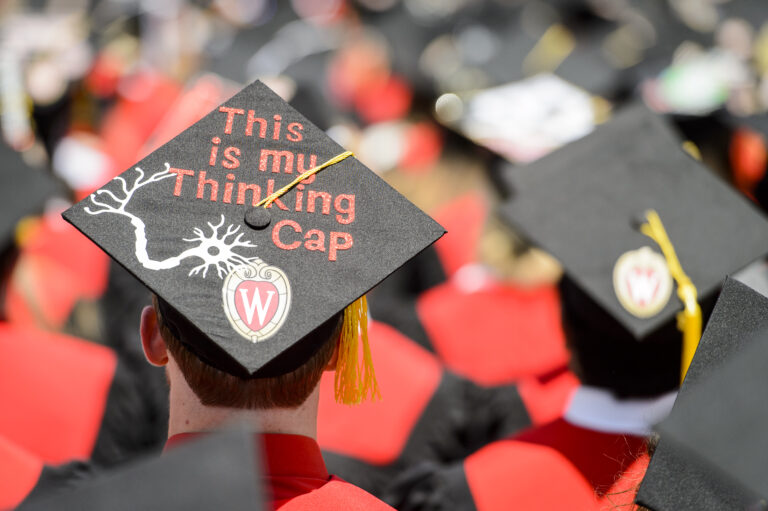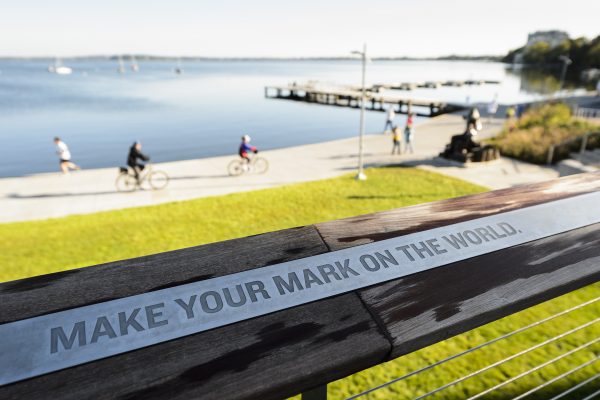A “post-bacc” is a structured or unstructured way of taking courses after you graduate. There are many reasons why you might take courses after you graduate. The Center for Pre-Health Advising is happy to talk with current students and alumni about taking courses after graduation.
Note: Taking courses to show an upward trend is fairly common with ~15% of students who started medical school in 2020 taking additional coursework after they graduated!
Reasons for doing a Post-Bacc:
- You are missing most or all of the required courses you need.
- Your GPA trend is downward and your overall GPA is below 3.0 (you want to take additional classes to show the work you are capable of NOW)
- Your GPA trends upward, but only in your last year (you want to take additional classes to confirm that the trend is real!)
- Your grades go up and down a lot (you want to take additional courses to show consistent, high quality work).
Questions to consider before taking courses:
- What is your current overall GPA?
- Have you calculated your science GPA (Calculating your GPA)?
- Are there classes you have taken at other institutions? Applications count all of your grades, not just UW-Madison!
- Make a plot of your GPA over each semester. Is there a random dip? Are there consistent dips or an upward trend? Applications break down your grades by year so it is easier to see trends.
Special Master’s Programs (SMPs)
These are programs you complete after your bachelor’s degree but before pursuing a health professions program and they vary in purpose and design. Types of Special Master’s Programs include:
This is an accordion element with a series of buttons that open and close related content panels.
Academic Record Enhancers
Academic Record Enhancer programs are for students who hope to enhance an existing undergraduate academic record. They have completed prerequisite coursework but need to improve their GPA in order to be competitive and well-prepared for a health professions school.
Coursework Masters Programs
These programs are for students who have majored in a science and completed all the prerequisite coursework. They allow students to take coursework at the same level as graduate students or medical students and may include other components such as research experience but a thesis is not required. A masters degree is conferred on all who complete the program. A good example is the Microbiology Master’s program at UW-Madison.
Career Changers
Career Changers programs are for students who need to complete the science coursework required for an application to and success in health professions schools.
Programs for Students Underrepresented in Medicine
These programs are for students from groups underrepresented in medicine or economically and/or educationally disadvantaged students and usually come with partial or full tuition remission. Below are some examples:
Resources for Special Master’s Programs
- AAMC Database includes information for career changers, academic record enhancers, student underrepresented in medicine, and students interested in careers other than MD/DO
- AACOM has programs located at DO schools, but the curriculum may prepare you for other professions
- PostBaccCAS is a database for programs that use the centralized application for PostBacc Programs.
- CPHA Canvas courses have modules on taking courses after you graduate with all of this information and much more.

Questions to Ask Yourself
- Timing: How long is the program (usually one to two years)? Will it fit your timeline? How much does the program cost?
- Cost: Is the program eligible for federal financial aid, or will you need to take our private loans? This is important to understand because federal financial aid can be deferred while you are in school.
- Program Structure and Support: Does the program have a set curriculum, or does the student develop his/her own curriculum? Would you be in a formal program with other students in a situation similar to yours? Will advising, research, and volunteer opportunities be available? Does the program offer test preparation?
- Level of Coursework in the Program: Will you be taking upper-level undergraduate coursework, graduate-level coursework, or coursework with medical (or other health professions) students?
- Competitiveness of the Program: How difficult is it to get into the program?
- Program Collaboration: Does the program have collaborative relationships with health professions schools? (Some post-baccalaureate programs are formally affiliated with medical or dental schools and guarantee an interview or admission to students who successfully complete their program.)
- Program Reputation: How long has the program been in existence? What is their placement rate? (If this isn’t on their website, call and ask!)
- Application Components: What are they — an application, personal statement, letter(s) of recommendation, entrance exam (e.g., MCAT, DAT, GRE), minimum GPA requirements? Also, note that some programs require you to have been denied application to a professional health school in order to enroll in their program.
Special Student Status
Students who want to complete or repeat prerequisite coursework on the UW-Madison campus after graduation can do so as a non-degree seeking “special student.”
Pros:
- The cost of classes is the same as the undergraduate tuition rate.
- It is a flexible option! You can decide which classes you need or want to take instead of being confined to the requirements of a program; you can build your schedule around work.
- The services of the Center for Pre-Health Advising are always available to alumni, so you will still have support in preparing, applying, and interviewing!
Cons:
- As a special student, you enroll for classes right before they begin. This is stressful. However, many departments reserve spots for special students, and we encourage students to contact professors about their need/interest in a course if they plan on enrolling as a special student.

How Do I Enroll as a Special Student?
- Contact Adult Career and Special Student Services to enroll as a special student.
- Other schools often have options for non-degree students. Search their site for keywords like: Non-degree student, Adult learning or Continuing education
Graduate Programs (Traditional Master’s Degree)
A Master’s program is (usually) a two-year research-based program. You take advanced coursework related to your research, develop a proposal around the research that you will do, and spend the majority of your second year finishing experiments and publishing your results.
How Do I Find a Graduate Program?
Many research-based MS programs require that *you* connect with a Principal Investigator (PI) of a lab and discuss research projects you might join. If the PI has space in their lab, and you are interested in the project, you will then apply to the Graduate school at that university. You will submit a personal statement and letters of recommendation (and maybe a GRE score) through an application portal – usually by December/January (depending on a school’s deadlines).
If you are currently involved in research and have a good relationship with a PI, start by talking with them. You may be able to continue the work you are doing after you graduate and earn your Master’s.
If you would like to work in a new lab, review the references of recent papers used in your lab! These are relevant contacts and people you can search on Google. Ask your PI if they have worked with any of these people and for advice in contacting researchers in other labs. Your PI understands the territory – let them guide you!

Pros:
- Many MS degrees in STEM fields are funded through federal grants. They are funded because you are contributing to the body of human knowledge through original research!
- You are able to do advanced course work in small classes, so you can get strong letters.
- You complete a thesis that shows advanced writing.
- The decision to do a 2 year program shows some sophistication and patience in the preparation process.
- It also puts some distance between mediocre course work and exceptional graduate work.
Cons:
- The down side (from your perspective) is taking 2 gap years since you apply after your first year in grad school.
- It also means doing the leg work to find a program that is suited to your interests and applying to grad school.